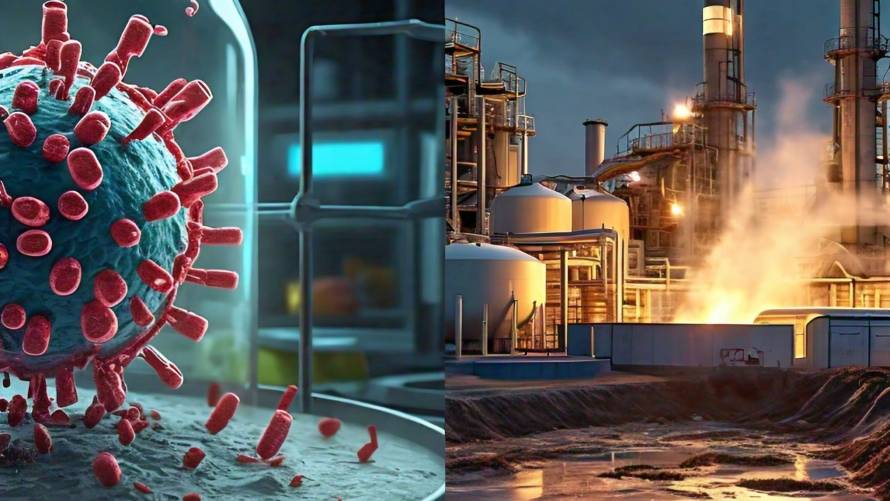Researchers at The University of Texas at El Paso (UTEP) have discovered a potential solution to the oil and gas industry’s wastewater problem using an unlikely ally: viruses. In a recent publication, doctoral candidate Ramón Antonio Sánchez and his collaborators detail how bacteriophages, viruses that are highly specific and lethal to a single species of bacteria, can be used to treat produced water on an industrial scale rapidly and cost-effectively.
Targeting Problematic Bacteria in Produced Water
The research focuses on two of the most prominent bacteria found in produced water across the oil and gas industry: Pseudomonas aeruginosa and Bacillus megaterium. P. aeruginosa can corrode stainless steel, posing challenges for the longevity of pipelines and other metal-based infrastructure, while B. megaterium can decompose hydrocarbons, the basis for oil.
Sánchez and his collaborator, UTEP alum Zacariah Hildenbrand, Ph.D., were inspired to use bacteriophages based on their applications in the medical industry, where they are used to combat infections caused by multi-drug resistant bacteria. “Since the bacteria are living organisms, over time they developed a resistance, in the form of a less penetrable membrane, to traditional disinfectants,” Sánchez explained. “But the bacteriophages, which are viruses themselves, attach to specific receptors on the surface of the host cell and evolve alongside the bacteria they are trying to infect, meaning that any resistance acquired by the bacteria triggers the modification of bacteriophages to keep the infection going.”
Challenges and Future Directions
While the team’s experiments with bacteriophages have been effective in laboratory settings, there are still challenges to overcome. The limited availability of commercially available bacteriophages, which are often highly specific to a single species of bacteria, is one hurdle. Additionally, there are other species of bacteria in produced water that remain to be tested.
Sánchez, who graduates this spring with his Ph.D., will continue his work in the industry, focusing on replicating his laboratory results in the field and expanding the number of microorganisms that can be treated in produced water by securing a larger catalog of bacteriophages.
“As UTEP’s status and research prowess nationwide continues to grow, so does its ability to attract talented students like Ramón and provide them with the opportunities to conduct meaningful work that has tangible and tremendous impact,” said Ricardo Bernal, Ph.D., an associate professor in UTEP’s Department of Chemistry and Biochemistry and Sánchez’ doctoral advisor. “I feel a great sense of pride for the work Ramón has accomplished in his time here and look forward to seeing the next step of his research and ultimately how the knowledge he creates will improve lives.”
Keyword/phrase: bacteriophages produced water treatment


